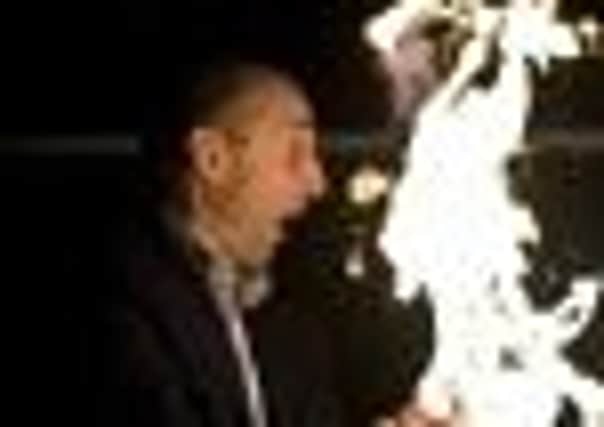Edinburgh Science Festival: unwrapped mummies join dancing dads


The 24th Edinburgh International Science Festival, which takes place from 30 March to 15 April, also benefits from a £180,000 funding boost from the Scottish Government in 2012.
The extra money will pay for the innovative “InMotion” exhibition exploring muscles and movement, which includes a “How Do You Dance” feature where embarrassing fathers can strut their stuff.
Advertisement
Hide AdAdvertisement
Hide AdThe festival’s first event was launched yesterday in St Andrew Square, a free, open-air photography exhibition with the theme of technology and nature called “Invisible Worlds”.
More than 200 events will take place across 30 different sites in the city over the main two-week run, including “Science on a Plate”, an exploration of science and food at the Royal Botanic Garden complete with a junior chef challenge; “Bang Goes the Theory Live”, the popular BBC 1 show that allows the public to put science and technology to the test; and a lesson in archaeology for children at the City Art Centre, complete with bandaged Egyptian “mummies”.
Among adult-themed events are “Aphrodisiac Cocktails and Canapés”, an evening with aphrodisiac expert Mark Douglas Hill and nutrition scientist Dr Alexandra Johnstone, and “Whisky Wisdom” with Dr Bill Lumsden, head of distilling and whisky creation at Glenmorangie.
Dr Simon Gage, director of the science festival, said: “It has to be entertaining and the festival is about what modern life is about and what culture is. It celebrates scientists in Edinburgh – it’s a real science city – and international enterprise.”
The festival, he added, could inspire young people to consider science as a career.
“As a country gets richer, people get less and less interested in science and technology, so it’s normal for India and China to be forging ahead.
“We need to look to the Swedes, Finns, and the Japanese – it’s about giving science and technology a prominence.
“We need to think about the next generation of scientists.”
The festival will also feature the awarding of the Edinburgh Medal to Professor James Hansen, an outspoken critic of climate-change deniers and head of the Nasa Goddard Institute for Space Studies in New York.
Advertisement
Hide AdAdvertisement
Hide AdThe Edinburgh Medal is awarded each year to men and women whose professional achievements are judged to have made a significant contribution to the understanding and wellbeing of humanity.
Amanda Tyndall, the festival’s deputy director, said: “Not only has [Prof Hansen] dedicated his life to science, but he has become a personal advocate on the issue of climate change.
“He is a voice of conscience for responsibility to the planet and to our children and grandchildren.”
Fiona Hyslop, the cabinet secretary for education and lifelong learning, said: “I’m proud of what it’s doing, not just for the city but for Scotland as a whole. This is Europe’s largest public celebration of science, and that nurtures future talent.”